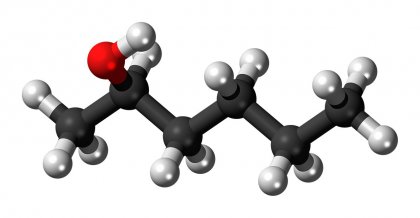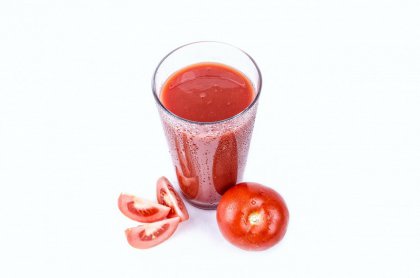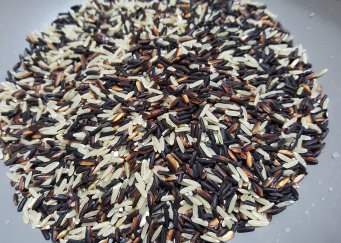 Niacin, or vitamin B3, protects our organisms from the development of very troublesome and destructive diseases. The first group of diseases is related to the functioning of the nervous system. Lack of niacin leads to nervous hypersensitivity, states of apathy, depression, schizophrenia. Vitamin B3 deficiency also affects the state of muscles and skin health.
Niacin, or vitamin B3, protects our organisms from the development of very troublesome and destructive diseases. The first group of diseases is related to the functioning of the nervous system. Lack of niacin leads to nervous hypersensitivity, states of apathy, depression, schizophrenia. Vitamin B3 deficiency also affects the state of muscles and skin health.
What is vitamin B3
 Vitamin B3, also called niacin or vitamin PP is a compound of nicotinic acid and 3-pyridylcarboxylic acid (it is a derivative of pyridine and nicotinic acid amiide - nicotinamide and niacin).
Vitamin B3, also called niacin or vitamin PP is a compound of nicotinic acid and 3-pyridylcarboxylic acid (it is a derivative of pyridine and nicotinic acid amiide - nicotinamide and niacin).
Niacin has an anti-allergic effect. The body is able to produce it on its own (from foods such as cheese, meat, fish and poultry), but the amounts created in this way are insufficient. it is necessary to draw this vitamin from food.
Vitamin B3 is soluble in water, glycerine and alcohols. It is insensitive to high temperatures and to acids or alkalis. Even ultraviolet rays do not damage it. This substance is very well absorbed by the body.
As we have already mentioned, although the body is able to produce it itself, it is necessary to eat foods with its content, because the body starts to produce the vitamin only when a deficiency occurs.
The body produces niacin from tryptophan, from which serotonin is produced, which is responsible for our mood, mental state and uninterrupted, deep sleep. Thanks to niacin, energy is created in a living cell.
Beneficial effects of niacin
 The presence of this vitamin in the body causes dilatation of blood vessels. This can have a positive impact on the health of people with low light vein problems, i.e. circulatory problems.
The presence of this vitamin in the body causes dilatation of blood vessels. This can have a positive impact on the health of people with low light vein problems, i.e. circulatory problems.
Vitamin B3 has a very important effect on the well-being of people harassed by migraine headaches. When replenishing niacin deficiency, care should be taken not to use substances that slow down the absorption of niacin, e.g. sugar.
It also has a stabilizing effect on the nervous system and psyche. Typical symptoms of malfunctioning nervous system and mental ill health caused by lack of niacin are sleep problems and anxiety. The presence or absence of niacin is also associated by scientists with schizophrenia.
Vitamin B3 reduces LDL cholesterol level in blood by about 22% and increases HDL cholesterol level by about 52%. In this way, it reduces the risk of heart and vascular diseases.
For beauty-conscious people, the concept of tranepidermal water loss is no stranger. This is the evaporation of water by the epidermis. The presence of vitamin B3 prevents this phenomenon. This vitamin soothes irritated skin, lightens discolorations, increases skin elasticity.
Antifungal action
Fungus and its most popular strain Candida Albicans can be not only a nuisance for people suffering from it, but also a serious threat to their health, causing skin diseases, lung diseases and asthma. Vitamin B3 has a destructive effect on fungal strains. This is important information for people with reduced immunity. While in a healthy organism a certain number of fungi is practically a natural and harmless condition, in people suffering from AIDS or from transplants, mycosis is a huge threat of mucosal infection and systemic infection.
Prevention
Taking vitamin B3 prevents the appearance of many ailments, including: menstrual pains, migraine pains, dizziness in Menier's disease, tinnitus, skin problems, seizures. Vitamin B3 is also helpful in regulating the menstrual cycle. In addition, its presence helps to combat disorders in the circulatory system, lowers blood pressure, eliminates circulatory problems, lowers blood cholesterol levels. It is necessary in the fight against some types of diabetes, and also influences the calming of wheezing breath in asthmatic patients.
What is the daily requirement for vitamin B?
Adolescents should take 5 to 12 mg of this vitamin daily, while adults should take 6.6 mg for every 1000 kCal lost. For pregnant women and persons performing hard physical work it is advisable to increase the daily dose by 3 - 6 mg.
Sources of vitamin B3
 Most niacin contains beer yeast, peanuts and wheat bran. Niacin also contains legumes, cheeses, peaches, dried peaches, whole cereal grains, almonds, buckwheat groats, soya, mushrooms and tomatoes.
Most niacin contains beer yeast, peanuts and wheat bran. Niacin also contains legumes, cheeses, peaches, dried peaches, whole cereal grains, almonds, buckwheat groats, soya, mushrooms and tomatoes.
In order to increase the bioavailability of vitamin B3, the consumption of sugar-containing products, i.e. sweets, sweetened drinks and even honey, should be reduced. Consuming large quantities of sweet foods leads to vitamin B3 deficiency and the appearance of many diseases, such as yeast.
Lowering niacin levels in the body can also be caused by taking sulfonamides, alcohol, sleep pills, estrogen, antibiotics, contraceptives, coffee, tea and sodium nitrate.
How to supplement vitamin B3 deficiencies?
Niacin absorption is increased by taking a complex of B vitamins, vitamins B1, B2, B5, vitamin C as well as phosphorus and chromium.
Vitamin B3 can be taken in supplements such as Stress Management, Vital, Full Spectrum, Infant Formula, Lion Kids D, Senior Formula, Menopausal Formula, or New Life.















